Opening Ceremony


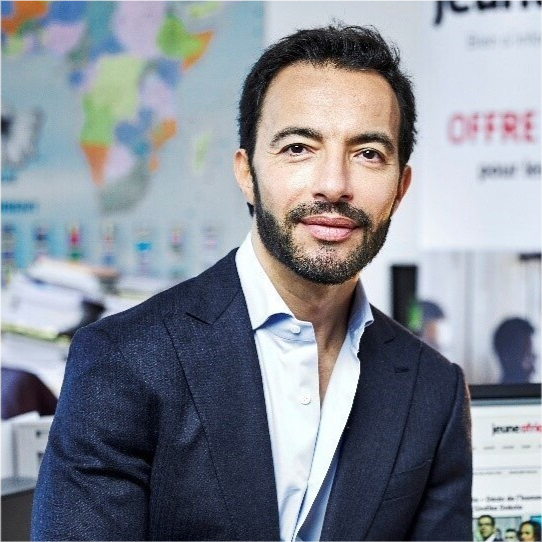

Opening Panel | A new era: Time to mobilise Africa's financial power
Africa's financial destiny and the continent's capacity to finance its economic needs require swift and strong action from regional and pan-African leaders. In the wake of a subdued international financial presence on the continent, African champions must now lead the way in establishing the continent's economic prosperity, from supporting trade finance and infrastructure projects to backing industrial, extractive, and renewable energy ventures. Key industry stakeholders discuss the regulatory environment and top priorities for scaled-up African financial institutions to drive economic growth and gain a foothold in global financial centres.
Key points:
- How will Africa’s financial industry be consolidated?
- From facilitating payment interoperability, to bringing financial products to the informal workforce, how can industry leaders further enable technological advances?
- Which human capital development strategy best supports the technical skills needed for the financial sector?




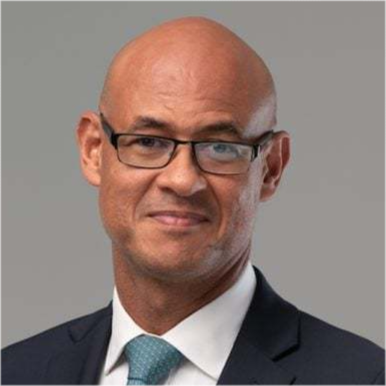
State of the Industry | Africa Financial Industry Barometer 2024
Deloitte and the Africa Financial Industry Summit – AFIS unpack insights from the 4th African Financial Industry Barometer. The annual survey of financial sector executives offers a deep dive into the industry's stance on regulations, sustainable finance, and the obstacles to financial inclusion. Discover how banks, insurers, fintechs, and capital market players are structuring their businesses, strengthening governance, and responding to regulatory shifts.

Macroeconomic Outlook 2025 | The building blocks for African financial institutions to scale up
Prof Carlos Lopes of the University of Cape Town has sounded the alarm that a biased global financial system, a crippling debt dependency cycle, and unfair credit ratings are coming together to accelerate international banking exits from Africa. With domestic financial institutions picking up the mantle, the economist looks at conditions they’ll need to succeed as Africa edges towards a modest recovery in 2025 (4.3% vs. 3.7% in 2024).

IDFC & BOAD Side Event | Climate Finance: An Innovative Solution for the African Financial Industry
Access by invitation only.
This private event will bring together high-level experts and key speakers, including Serge Ekué, Co-President of the IDFC and President of the West African Development Bank (BOAD), and Adama Mariko, Secretary General of FiCS and Deputy Director for Mobilization, Partnerships and Communication of the Agence Française de Développement (AFD). Discussions will focus on the role of the IDFC, the significance of climate finance as an innovative solution for a new financial architecture, and the impact of COP29 on the African financial industry.
The International Development Finance Club (IDFC) is a network of 27 national, regional, and bilateral development banks, co-chaired by the West African Development Bank (BOAD). Its members collaborate to implement the Sustainable Development Goals and the Paris Agreement agendas, uniting as a platform to promote and facilitate sustainable development investments worldwide.


Side Event | Ecobank - AI and payments: Achieving a transformative leap in financial services
Access via sign-up on the event app or by invitation only.
Ecobank is poised to transform African payments and remittances through strategic AI investments. The pan-African group's newly formed 'Payments, Remittances and Fintech' business line aims to cement its position as Africa's leading payments powerhouse. In an exclusive event, Ecobank will discuss with global tech giants, the importance of AI innovation in the payments industry. BCG Managing Director Frederic Boutet will also highlight the immense potential of generative and predictive AI to drive cost savings, revenue growth, and customer and employee satisfaction in African banking.




Energy, private equity, real estate: How can African institutional investors better exploit these opportunities?
Access via sign-up on the event app or by invitation only.
African institutional investors are looking to diversify their portfolios into alternative assets such as private equity, real estate and infrastructure to optimise their risk-return profile. But alternative assets represent just 3% of total assets under management due to a lack of properly adapted local products, limited risk management and regulatory constraints. This is despite efforts by regulators in Ghana, Kenya and Nigeria to raise investment limits in a push to encourage more ambitious allocations. A roundtable bringing together pension and sovereign funds, insurers and regulators will discuss strategies to stimulate investment in alternative assets.
Key points:
- Valuation of complex financial instruments, due diligence, risk management: How to strengthen the capabilities of industry players
- Restrictive investment limits, taxonomy and reporting standards, taxation: What reforms are needed to create a favourable regulatory environment?
- How can the industry develop diversified and appropriate product offerings?








Side-Event | CIFF & BwB | Financing essential government projects: Mobilising domestic and international resources through innovative financial instruments
The annual financing gap for infrastructure in Africa ranges between $53 billion and $96 billion, a figure that was exacerbated by the COVID-19 pandemic. Fostering innovative financing solutions that tap into the vast domestic savings managed by African institutional investors, estimated at $1.85 trillion, can provide a sustainable funding source to bridge the continuing financing gap for project development. How can African nations harness domestic resource mobilization, particularly through catalytic capital, to finance essential projects and ensure the successful implementation of Agenda 2063?
Key Points:
- Facilitating collaboration: How can innovative approaches support governments in accelerating transactions?
- Counting on catalytic capital: What are the opportunities to stimulate private sector investment?
- Working together well: how can innovative financial instruments address the existing barriers within Africa’s current financing architecture?
1024_1-transformed.jpg)



Unified market, uneven rules: How deep can insurance integration go under AfCFTA?
A draft AfCFTA framework on financial services could, if approved, drive regulators, including in insurance, to harmonise prudential measures. While Africa’s insurance sector has made strides in aligning minimum capital requirements and domestication policies in the CIMA zone, other harmonisation initiatives - such as cross-border motor accident cover in West and East Africa - have stalled due to poor recognition by member states, low public awareness, and delays in claims settlement. Furthermore, many African markets continue to impose residency requirements for insurers and reinsurers or mandate risk-sharing with domestic firms to protect national interests. How can such policies be reconciled with AfCFTA integration? What measures should regulators take to protect their markets while advancing the common market?
Key points:
- Common licensing and risk-based capital approaches: The next steps to align prudential measures in anticipation of the AfCFTA framework
- Domestication policies: Fundamental to protect national interests or incompatible with AfCFTA integration?
- How to design a governance structure fit to harmonise prudential measures in insurance?



Trade finance: Bridging Africa's correspondent banking gap
African commercial banks based in low-credit-rating countries are finding it difficult to establish appropriate correspondent banking relationships with international banks, many of which have withdrawn from Africa. Dr. Sidi Ould Tah, President of the Arab Bank for Economic Development in Africa (BADEA), Admassu Tadesse, Group President and CEO of Eastern and Southern Africa's Trade and Development Bank Group (TDB Group), and Prof. Benedict Oramah, President, Afreximbank discuss how expanded DFI trade finance guarantees and payment risk cover could bridge the gap and enable partnerships between African banks and global financial institutions.
Key points:
- Will trade finance guarantees be enough to ease international banks’ risk-aversion to African partners?
- How can DFIs boost African banks' liquidity to enable larger banks to act as correspondent banks for smaller ones?
- Reducing complexity: What more can DFIs do to support African banks in adopting digital trade finance solutions?



Connected capital markets: Unlocking intra-Africa stock trading
Intra-African trade has seen growth, yet it remains only 15% of total trade—far below Europe’s 68%. The African Exchanges Linkage Project (AELP), launched in December 2022, connects over 2,000 companies with a combined market capitalisation of $1.5 trillion, aiming to facilitate cross-border securities trading and boost market transparency across seven African exchanges. Through increased liquidity and investment attraction, AELP has the potential to drive economic growth. However, challenges such as regulatory fragmentation, settlement and clearing complexities, and infrastructure gaps must be addressed to unlock its full potential. How can the AELP advance its goals while fostering essential regulatory and settlement reforms to build long-term competitiveness?
Key points:
- How can the AELP enhance the global competitiveness of African capital markets?
- What regulatory and monetary reforms are needed to maximize the platform’s impact on intra-African trade?
- How can we ensure that SMEs and other small businesses fully benefit from the integration of African stock exchanges?







Masterclass | Embracing AI and Blockchain for Finance - Pathway to the Next Billion: Leapfrog or Freefall
In an era of rapid technological acceleration, African financial leaders face a critical choice: embrace transformative technologies like blockchain and AI to leapfrog legacy systems or risk stagnation. Africa has already demonstrated its ability to leapfrog, becoming a global leader in mobile payments. Now, blockchain and AI offer similar revolutionary potential.
Key Points:
- How can Africa lead in adopting blockchain and AI to empower the next billion?
- What are the fundamentals of these technologies, and how do they work?
- How can finance leaders develop the right regulatory frameworks and drive adoption?
- What are the distinctions between cryptocurrencies, digital assets, and Central Bank Digital Currencies (CBDCs)?

CBDCs: Maximising the potential for cross-border payments and financial inclusion
Access via sign-up on the event app or by invitation only.
Egypt, Ethiopia, and Rwanda this year joined a growing list of African nations exploring CBDC launches. Nigeria’s eNaira wallet, integrated by some fintechs and commercial banks, shows the potential for offline services to the unbanked - although only 0.5% of Nigerians were using the eNaira within a year of its 2021 launch. Elsewhere, global pilots suggest interoperable wholesale CBDCs could offer instant cross-currency payments, an opportunity for African states to consider. A roundtable of central bank governors and financial institutions discusses how CBDCs can catalyse financial inclusion and ease cross-border payments.
Key points:
- Ensuring retail CBDCs bring value to underbanked communities and achieve uptake goals
- Debit cards, mobile wallets, bill payments: What CBDC innovations can commercial banks, fintechs and mobile money develop to increase penetration?
- Working towards interoperable CBDCs for cross-border payments that co-exist with regional payment systems and the PAPSS – Pan-African Payment and Settlement System

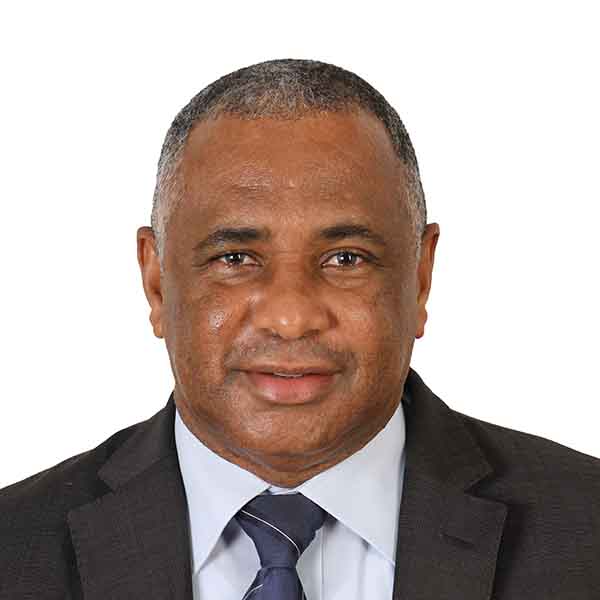





Orchestrating pan-African interoperability for mobile money
Access via sign-up on the event app or by invitation only.
BCEAO’s pilot interoperable instant payment system marks a decisive turning point in progressing mobile money interoperability on the continent. While West Africa is accelerating interoperability projects, the rest of the continent is lagging. Ambitions for continental interoperability remain thwarted by diverse financial regulations, cumbersome negotiations between stakeholders and difficult decisions on distributing the cost of the digital infrastructure needed. This closed-door roundtable brings together regulators, mobile money operators, fintechs and banking institutions to define the conditions for setting up Pan-African mobile money interoperability.
Key points:
- Harmonisation and standardisation: How to meet the challenge of fragmented African regulations?
- Mobile operators, mobile money services, banks and governments: What types of partnership should be favoured?
- Digitisation & financial inclusion: Could payment interoperability be the tool for pan-African economic integration?






SME finance: Strategic partnerships for the digital age
Access via sign-up on the event app or by invitation only.
Small and medium enterprises are the backbone of African economies, central to employment, innovation, and economic growth. The financial industry has often considered such businesses too risky and too costly to serve, leaving a huge market opportunity unexplored. In recent years however, the adoption of digital channels, enhanced data analytics, and innovative business models have allowed forward-looking financial services providers to take their SME banking to the next level. Partnerships between new and old players have proved essential to bringing such innovation to fruition, in some ways upending the established financial industry playing field. This Strategic Roundtable session will explore what makes for successful SME finance partnerships in the digital age, drawing on the varied perspectives of commercial banks, fintechs, telcos, and regulators.
Key points:
- What are the key make-it-or-break-it points of partnerships between financial industry actors in delivering digitalized SME finance solutions?
- What steps can African financial industry actors take to ensure that digital finance solutions for SMEs are scalable across diverse African markets?
- How can policymakers ensure that underserved SMEs, particularly in rural areas, benefit from digital finance solutions?
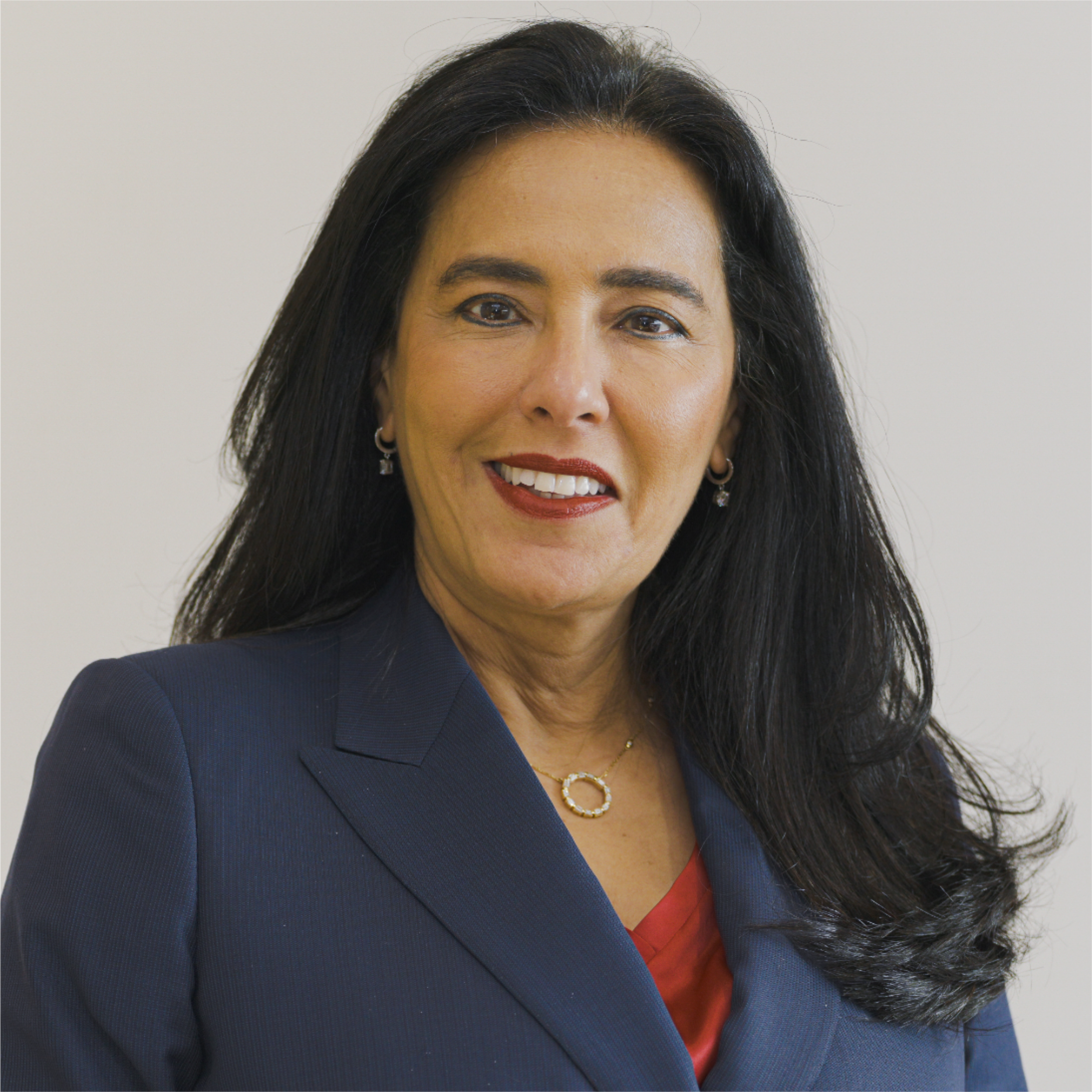







Women in Finance | Can gender bonds and innovative mobile products unlock a $2.5 trillion opportunity?
Gender bonds and mobile apps offering advanced capital to women hold new hope to empower female entrepreneurs, who could add $2.5 trillion to Africa’s GDP by 2025. But the continent has the lowest gender bond issuance globally, and the digital tools designed for women-led MSMEs still face challenges of digital literacy, internet connectivity, and access to financial services. In 2022, South Africa’s Rand Merchant Bank was the first to issue a US$58mn gender-linked bond on the continent. But the financing tool is viewed as complex due to the lack of a ‘go to’ reference on the processes and precedent on investor returns. How can financial institutions better design innovative financing tools such as gender bonds and digitalisation of collateral to help bridge Africa's gender finance gap?
Key Points:
- Better inclusivity: What challenges do financial institutions face when offering digital or mobile products designed for women?
- Better design: How can gender bonds entice investor return?
- Lessons learned: How do successfully issued gender bonds and digital products for women in other countries apply to Africa?





Conversation With | Broadening Africa's access to international capital markets
International markets will be critical to funding Africa’s most ambitious development projects following the withdrawal of many large international banks from the continent. Yet, the number of African banks licensed in Europe, or the United States is less than ten and there are very few African companies listed on global markets. In this high-level conversation, Edward Knight, Nasdaq’s Executive Vice Chairman discusses how Africa can build big corporates and financial institutions at home that encourage the public-private trust needed to attract their international counterparts.


Side event Proparco-European union | Guarantees and innovative approaches to investment de-risking in Africa and the MENA region
Recognised as drivers of inclusive growth, economic stability and sustainable job creation, small and medium-sized enterprises face an investment gap estimated at 331 billion dollars a year. Against this backdrop, guarantee mechanisms are emerging as levers for accelerating and sharing risk, enabling local financial institutions to better support private sector financing. These guarantees address the obstacles to access to credit, the risks of insolvency, and mitigate the often exaggerated perceptions of risk.
This side-event explores the evolution of this de-risking tool, the advantages of blended-finance and its impact on private sector growth in Africa and the MENA region.






Critical Infrastructure: Increasing the supply of patient capital
Access via sign-up on the event app or by invitation only.
Patient capital with a 10–20-year horizon is crucial to bridge Africa's $108 billion annual infrastructure gap. In 2023, only 3% of global infrastructure investments reached sub-Saharan Africa as institutional investors prioritise stable, low perceived risk destinations with clear regulations. Capturing just 1% of global institutional assets or unlocking $150-$240 billion in domestic savings from insurance and sovereign wealth funds could uplift Africa's infrastructure landscape. How can stakeholders align policies, mitigate risks, and direct patient capital towards essential long-term infrastructure projects?
Key points:
- Stable and predictable returns: Optimising capital structures, transparency and governance to derisk investments and attract institutional investors
- Moving towards supportive regulatory frameworks for blended finance and better public/private sectors risk sharing
- How can institutional investors be engaged and educated about the long-term value of Arican infrastructure investments?




Insurance's role in a climate-altered future: From risk to resilience
Access via sign-up on the event app or by invitation only.
Weather-related disasters impacting Africa surged by 75% from 2014 to 2023, exacerbating the disaster risk insurance gap. Insurers could play a crucial role in helping businesses and individuals absorb losses from flood, drought and climate-induced epidemics. But data gaps, limited risk transfer tools, and a lack of regulations for transferring risk hinder climate insurance growth. Regulatory authorities, underwriting insurers and development finance institutions convene in a roundtable to ensure the insurance sector is prepared to cover losses for millions that could be affected by climate change.
Key points:
- What kind of regulatory framework is needed to help the insurance sector absorb climatic risks?
- How could development finance institutions bring new instruments for risk transfer?
- What can insurers do to optimise underwriting and risk strategies?






Disrupters Club | Innovating under pressure: The future of African fintech payments
Africa’s mobile payments market is on the cusp of explosive growth—750 million users and revenue jumping from $3.5 billion to $20 billion by next year. But in the past six months, new regulations have started to shake the fintech landscape. Kenya’s recent data protection fines targeting major players could restrict access to vital cross-border data, risking the competitiveness of local fintechs in an increasingly global marketplace, while Nigeria’s e-payment tax and South Africa’s expanded consumer protection laws could threaten the pace of digital innovation. As these regulations tighten, many industry leaders warn that the current regulatory environment is not just a hurdle—it’s a barrier to survival. Can African fintechs adapt and thrive amidst growing regulatory pressures, or are they reaching a critical breaking point?
Key Points:
- Balancing stringent data compliance with the need for agile, innovative solutions
- Which data regulatory practices will attract international investors to the mobile banking payment market?
- What lessons can be learned from successful partnerships between governments, financial institutions, fintechs, and mobile network operators?







Disrupters Club Networking Break
IFC Side Event | Empowering Africa's MSME Ecosystem Through Synergistic Partnerships
Access by invitation only.
Alliance for Entrepreneurship in Africa (AforE) members, alongside high-level experts and key stakeholders, will discuss solutions for Africa's small businesses, focusing on enhancing entrepreneurs' access to finance and markets and strengthening the MSME agricultural ecosystem.
The Alliance for Entrepreneurship in Africa (AforE) is committed to fostering innovation and collaboration to tackle SME and entrepreneurship challenges in Africa. This event will showcase innovative projects, discuss the Alliance's activities, assess progress, and explore how the Alliance platform can further mobilize resources, promote innovation, and enhance impact with project examples.

Side Event Capital Markets | Developing Market Liquidity: What New Products and Markets to Offer Investors?
The African financial market is undergoing significant transformation, with a market capitalization of approximately $1 trillion in 2023, experiencing annual growth of 5% to 10% in certain regions. In 2022, bond issuances in sub-Saharan Africa exceeded $30 billion, reflecting a growing interest in debt as a financing tool. Despite this momentum, challenges remain in terms of access and transparency.
What new products and regulatory innovations could amplify this growth and attract more investments?
Key Points :
- What strategies are essential for a successful launch of the futures market, and how can it boost liquidity?
- How can regulatory reforms support liquidity and attract long-term capital?
Securities lending as a lever for market growth. - The role of ETFs in enhancing liquidity and diversifying investment options.
- Listing mutual funds in the WAEMU region: What are the prospects for improving investor access to financial products?


-transformed.jpg)
CDG Side Event | The Caisse de Dépôt Model in Africa: Mobilising Domestic Financial Resources for Economic Growth and Sustainable Development
In Africa, the need for long-term financing solutions has become essential to addressing pressing development goals, from infrastructure and climate resilience to sustainable growth. The "Caisse de Dépôt" model plays a pivotal role in channeling domestic financial resources toward these critical areas, contributing to economic resilience, and addressing climate challenges.
This private session will involve our distinguished panelists who will discuss ways African deposit funds can drive sustainable finance, prioritize investment in climate and growth sectors, and leverage public mandates to foster innovative financing models. The event will conclude with an interactive Q&A session and a networking reception.





Disrupters Club | Eliminating bottlenecks in the $40bn embedded finance space
Access via sign-up on the event app or by invitation only.
Africa and the Middle East’s industry to embed payments, credit, savings, investing and insurance products on non-financial platforms is set to almost triple in value by 2029 to around $40 billion. South African retailer Woolworths saw profits in its financial services segment double in FY 2024, through a joint venture with Absa offering in-store credit, credit cards, personal loans and short-term insurance. Embedded finance could bring essential services to the underbanked, but the segment remains constrained by fragmented regulatory frameworks, inconsistent digital infrastructure, lengthy licensing procedures and challenges integrating with legacy systems. In a closed-doors roundtable, traditional financial players, fintechs and regulators discuss developing a regulatory environment to capitalise on a booming sector that could revolutionise financial inclusion.
Key points:
- From telco to e-commerce platforms: Overcoming tech hurdles to embed exciting financial products in digital consumer channels
- Streamlining approvals and oversight for embedded finance: Balancing consumer protection with efficient licensing processes and a purpose-built regulatory framework
- Winning consumer trust: Developing a strategy for widespread adoption





New International Economic Order: Where do African financial institutions weigh in?
To defend African interests and strengthen its position in the global financial landscape, the African Union convened the continent’s multilateral heavyweights to join the ‘Africa Club’. With its capital of $65 billion, the Africa Club aims to leverage its combined influence to reform the global financial architecture, while encouraging the mobilisation of funds nationally and regionally. Can these efforts at emancipation survive pressure from international institutions seeking to maintain the status quo, or even strip Africa Club members of their privileged creditor status?
Key points:
- Following 50 years of attempts to reform the international financial architecture, how is Africa now better placed to defend its interests?
- African resource mobilisation: How can global taxation reform, savings rates, and new sources of catalytic capital move the needle?
- Governance: What strategies can be implemented to promote collaboration among the institutions of the Africa Club?





The role of stock exchanges in accelerating the climate transition
Access via sign-up on the event app or by invitation only.
Green bonds have become a widespread practice globally for financing green projects, reaching $588bn in 2023, but bond issuance in Africa remains low ($2bn in 2023), and highly concentrated in a few countries. Last year, the AfDB issued four green bonds totalling $517m, the Tanzanian government issued a $20m bond, and Nedbank issued a green bond of around $118m. Certain governments are taking actions but face an uphill task to mobilise green bond capital. A roundtable of supranational institutions, capital market players, commercial banks and public sector representatives discuss how to accelerate successful green bond issuance on Africa’s stock exchanges.
Key points:
- How can financial markets promote the structuring of green bonds to state-owned enterprises and corporates?
- What’s needed to enhance green bond regulatory frameworks?
- How could Africa’s green finance products be more attractive to global investors?



AgTech: Financing the transformation of Africa’s agriculture and food systems
Africa needs to significantly improve productivity in its food value chains to meet the current and growing demand of an increasing population and achieve food security. Agricultural Technology (agTech) presents an opportunity to transform agriculture and food systems in Africa in the way Fintech has transformed financial inclusion in the past decade. AgTechs connect smallholder farmers to mechanization, quality inputs, and a range of digital services to improve farming, making it possible to de-risk, reduce the cost of servicing, and increase the productivity of small-scale agriculture to a point where it can be financed commercially, with support from blended finance along the way. How can policymakers, regulators, agTech companies, and the financial industry create the ecosystems needed to transform Africa’s agriculture and food systems, and generate domestic revenues for African countries?
Key points:
- What types of financing models can effectively close the funding gap, enhance resilience and productivity for smallholder farmers, and simultaneously de-risk investments for financiers?
- What types of partnerships have been most successful in scaling agri-finance solutions and what are the opportunities for replicating and scaling these across different African countries?
- How can policymakers encourage private-sector investment in agTech and create a supportive environment for agri-finance innovations?

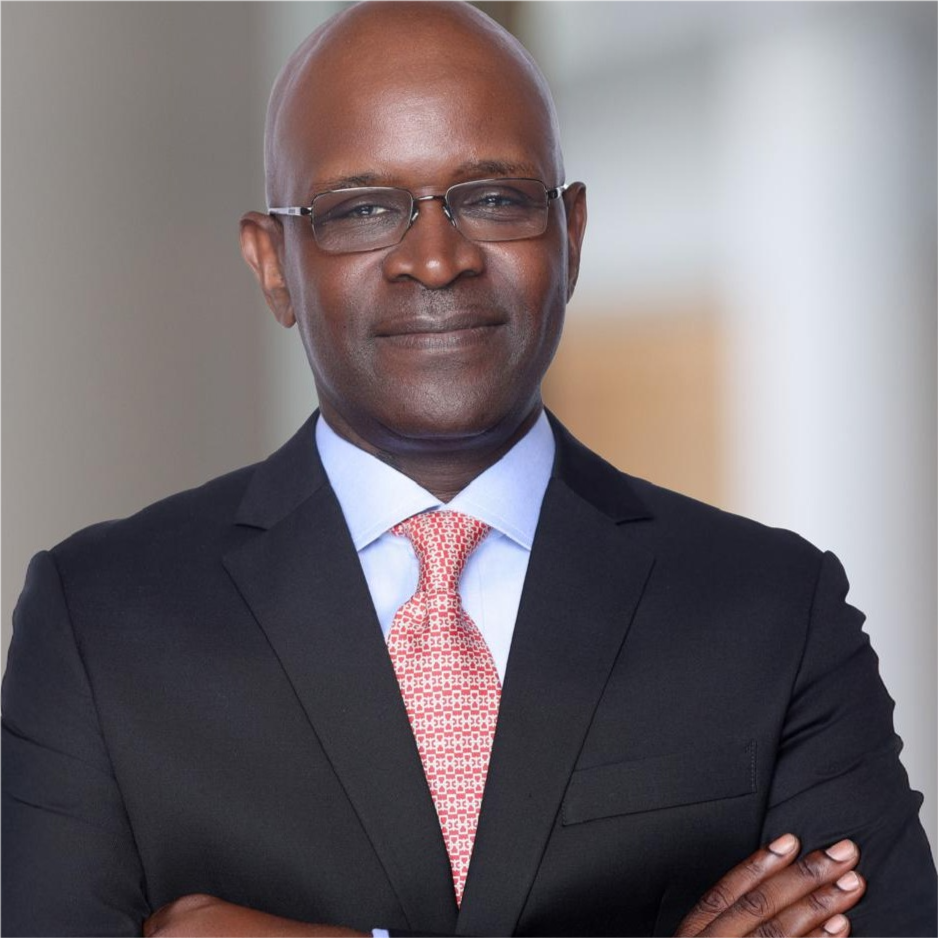




Side Event | Mobilizing Resources for Financing African Economies: The Role of Structured Finance
Addressing Africa's development needs requires innovative approaches to structured finance. With an annual infrastructure deficit of $108 billion, tools such as securitization, ESG bonds, and blended finance are key to mobilizing local and international capital. For instance, capturing 1% of global institutional assets could inject $2 trillion into the continent. In Senegal, Invictus Capital & Finance has structured significant initiatives, including a $120 million SONATEL securitization bond, a $300 million "Trade Loan" program for food security, and an $80 million bond for a strategic project at the Port of Dakar.
This panel will explore the potential of these models to mitigate risks and support sustainable growth in Africa.
Key points :
- How can these financing models be tailored to address the unique challenges and opportunities of African markets?
- What specific risk-sharing instruments can boost investor confidence and improve project viability?
- How can structured finance accelerate Africa's progress toward its key development priorities

Data-driven microfinance: What more can institutions and banks do to elevate impact?
Access via sign-up on the event app or by invitation only.
With one of the most extensive points of sale and agent networks in the continent (e.g. 1,700 PoS in Morocco), microfinance institutions are hindered by heavy reliance on physical infrastructure. Partnerships with traditional institutions could diversify microfinance offerings (e.g. savings, payments, insurance), yet micro-lending prevails as the focus for low-income populations. High allowable microfinance interest rates, face growing scrutiny over their poverty reduction impact. As African regulators seek to enhance microfinance institutions’ role, a roundtable of stakeholders assesses how to better serve the low-income segment.
Key points:
- Moving from people-intensive distribution models to a leaner digital and data-based approach
- Achieving lower interest rates through expanded AI & machine learning credit scoring
- Using micro-credit as an anchor to serve consumer micro-savings & micro-insurance needs

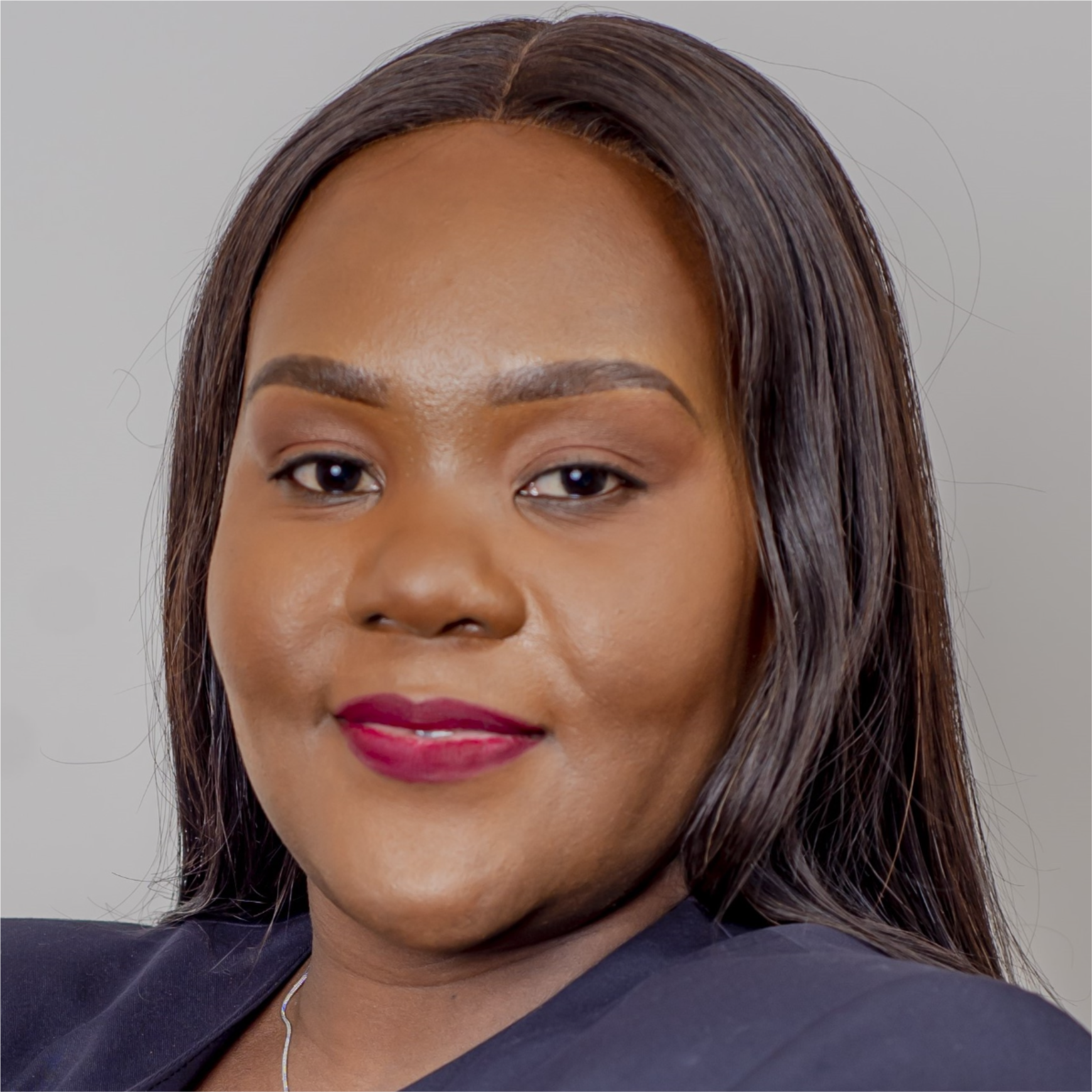
.jpg)





.jpeg)

-transformed.png)

CEO Talk | Building African banking powerhouses in global financial hubs
Following international banking exits across African markets, continental banks have an historic opportunity to become truly global banks in key financial centres, from London to Hong Kong. Such an expansion could mobilise funding and foster cross-border trade to Africa, yet few African banks have made this leap. Companies like Access Bank, First Bank of Nigeria and Bank of Africa are exceptions. The former recently raised $1.8 billion to expand globally with eyes on US market entry by 2026. CEOs of top African banks discuss the strategic imperative of global expansion.
Key points:
- Navigating regulatory hurdles for banking licenses and local compliance
- Correspondent banking: Can African banks really be viable alternatives to international banks?
- What business models will help African banks succeed internationally?




Beyond restructuring: How to build an equitable architecture for African debt?
Africa faces the highest external public debt borrowing and servicing costs in the world, with debt service obligations of $163 billion this year. According to a number of experts, this is partly due to an unfairly inflated perception of credit risk and inappropriate international banking rules. At the same time, restructuring mechanisms such as the G20 Common Framework are proving ineffective, as seen in Ghana, Zambia and Ethiopia. With the African Union calling for more concessional financing from multilateral banks, how can creditors and debtors work together to stem the tide of defaults?
Key points:
- Paris Club and G20 Common Framework: What reforms are needed to make restructuring mechanisms fairer?
- Special Drawing Rights, capital increases, local currency loans, liquidity support: How can the IMF and multilateral banks contribute to more favourable financing?
- Pan-African rating agency, Big Three reforms: How to correct the African risk premium





Side Event | PAPSS: Rollout Updates, Country Case studies and New Product
Without payment, there is no trade! Designed to facilitate efficient cross-border payments in African currencies, the Pan-African Payment and Settlement System (PAPSS) supports the implementation of the African Continental Free Trade Area (AfCFTA), aiming to transform the financial landscape of the continent. As we approach the three-year mark, significant strides have been made in PAPSS's implementation across various African countries. This overview delves into the system's deployment across African countries, sharing case study in pioneer countries, and introduces a groundbreaking product recently piloted to address corporates facing challenges with movement of funds across the continent. Where are we today on the rollout of PAPSS? What are the challenges? What possibilities does this new product open up for businesses across Africa?
Women in Finance Workshop | Future-proof training: Up-skilling women for the evolving digital landscape
Access via sign-up on the event app or by invitation only.
Women are significantly underrepresented in Africa's fintech scene, making up only 27% of roles across the continent, and even less in leadership positions. Only 3.2% of fintech firms are female-led and despite a growing wave of female entrepreneurs, there is a persistent gender gap in access to crucial resources and sector-specific training. From mastering blockchain for secure payment systems to harnessing AI for personalised banking solutions, what skills and support do women need to be at the forefront of fintech's future and to break through leadership barriers?
Key points:
- Bridging the skills gap: What targeted educational programs and mentorship networks can equip women to lead in Africa’s growing fintech ecosystem?
- Building inclusive fintech ecosystems: How can innovative partnerships between financial institutions, tech firms, and women's organisations create a supportive environment for female fintech entrepreneurs?
- Championing female leadership: What role does sponsorship play in advancing women into leadership positions within fintech, and how can these networks be strengthened?




Capital markets: Connecting the dots between investors and issuers with fintech
Access via sign-up on the event app or by invitation only.
GenZ investors are increasingly turning to low-entry-point investment apps like Trove, Bamboo, and Cowrywise. These platforms provide AI-driven insights and access to African stocks, bonds, and mutual funds, potentially boosting capital markets. Commercial banks could adopt similar models through fintech partnerships, but few have acted. Widespread investment scams and limited financial literacy threaten the adoption of existing apps. Almost no regulatory guidelines specific to investing apps exist, forcing fintechs to rely on decades-old broker regulations that overlook key issues like cross-border investing. A roundtable of fintechs, regulators, and capital market stakeholders lay out the groundwork for digital investing to achieve critical mass.
Key points:
- Developing a digital investment culture: Drawing in investors and issuers
- Building scale: Enticing traditional banks to embed digital investing products
- From sandboxes to regular fintech-regulator dialogue: What should bespoke, co-created regulatory guidelines for investing apps look like?







SWIFT alternatives: Fuelling faster and cheaper international payments
Access via sign-up on the event app or by invitation only.
Stable coins, PAPSS, regional payment systems like Buna, fintech providers, a BRICS payment system, blockchain and CBDCs have all been put forward as alternatives to SWIFT, the world’s dominant method to facilitate cross-border payments. These options offer possibilities to tackle inconsistent and often high fees charged by financial institutions to businesses under SWIFT, and to reduce the up to five days settlement time. Could the many alternatives create a fragmented landscape that will cause interoperability challenges, or will multiple solutions stimulate innovation and cater to different types of cross-border transactions? Regulators, and SWIFT alternative providers, banks, and fintechs discuss how to achieve a thriving cross-border payment environment for Africa.
Key points:
- Craving compatibility: How to ensure interoperability between the many cross-border payment system infrastructures?
- Role of regulation: How can AfCFTA facilitate technical coordination and regulatory cohesion between central banks and national regulators with independently designed payment platforms?
- CBDCs, fintechs and cryptocurrencies: With so many payment options, where do these new players fit into the equation and how are they transforming cross-border payments?

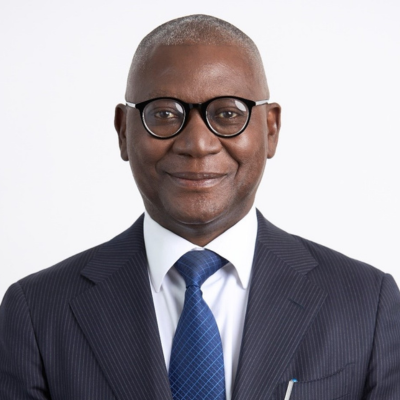


How can commercial banks build a climate agenda with real impact for Africa?
Dominated by international funders and development banks, African climate finance faces an estimated annual funding gap of $250 billion – a gap that African commercial banks could help bridge. Increased participation from these banks could mobilise domestic and regional resources, optimise private sector capital reserves, and more effectively direct funding towards local projects. However, a lack of experience in climate data capturing and modelling processes poses challenges for African groups. Following in the footsteps of the African Green Banks Initiative, how can collective and pan-African strategies be implemented?
Key Points:
- COP, the Marrakech Declarations, the African Green Banks Initiative: How are African banks taking the lead?
- Stress tests, solvency rules, macro and micro-supervision: How can regulators and supervisors better support banks?
- Bankable projects and local initiatives: Are commercial banks having real impact?



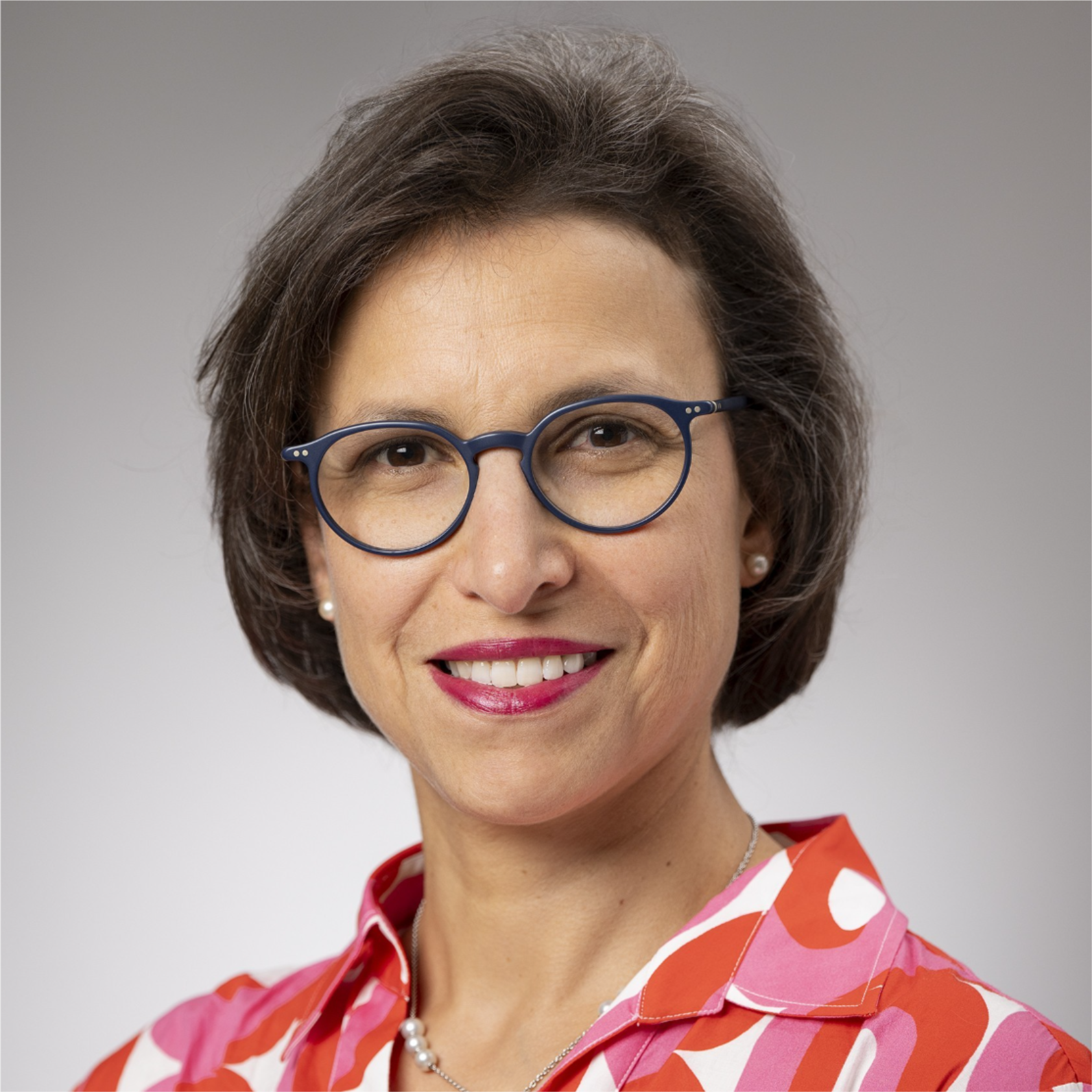


Turning consumer savings into productive investments via capital markets
Access via sign-up on the event app or by invitation only.
Channeling Africa's savings into productive investments that drive economic growth remains a critical challenge. Success stories like M-Pesa in Kenya, and South Africa’s Tax-Free Savings Accounts (TFSAs) have increased financial inclusion, and abroad Singapore’s Central Provident Fund (CPF) and India’s Systematic Investment Plans (SIPs) have channeled massive savings by providing citizens with accessible investment options. But many commercial banks are hindered by regulatory constraints. How can this challenge be addressed from both sides: providing a strong regulatory framework that protects investors’ interests while encouraging innovation towards diversified, user-friendly and accessible investment platforms?
Key points:
- Incentives and tax benefits: How can governments further encourage investments in capital markets?
- Financial literacy: How important are digital tools like robo-advisors to help consumers understand the benefits and risks of investing in capital markets?
- What is the role of regulation to strengthen customer protection and oversee market conduct?





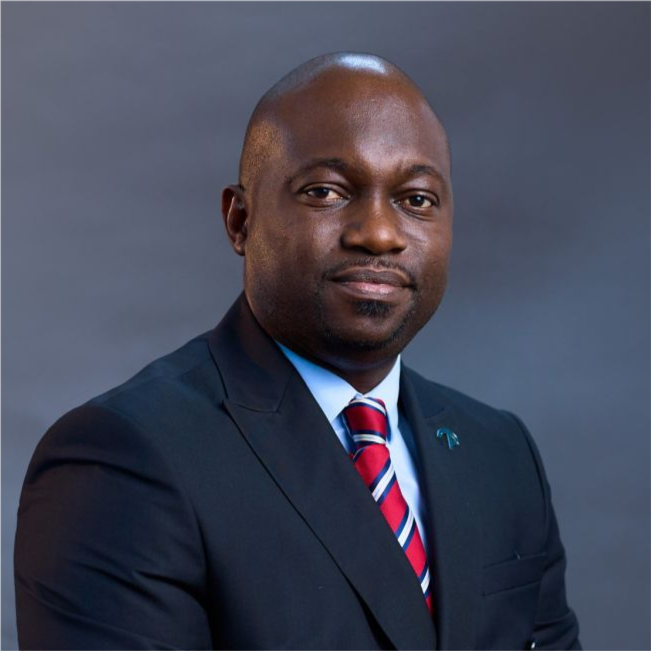

Conversation With | Balancing economic and social reforms
Social safety nets like universal healthcare require financing. Ambitious projects, like those undertaken by the Moroccan National Social Security Fund (CNSS) illustrate the challenges and opportunities of aligning financial investments with social development initiatives. Understanding this delicate balance between financial considerations and social development goals is imperative to create strategies for sustainable and inclusive growth for the continent. A conversation with Hassan Boubrik, Managing Director of CNSS looks at best practices, and successful partnerships between the private, public and non-profit sectors.

Cracking the code on expanding insurance to the informal sector
Embedded insurance on mobile money and banking apps holds vast potential to expand access to health, crop, and personal accident cover for informal workers, 83% of Africa’s workforce. While partnerships are growing in the space, insurers are still grappling with tech integration hurdles, data gaps on informal sector risks, pricing strategies for a segment with irregular incomes, and complex multi-regulator compliance with central banks, insurance, and telco regulators. Banks and telcos are meanwhile questioning if the revenue potential outweighs the implementation effort. What critical moves will enable embedded insurance to transform Africa’s sub-3% insurance penetration rate?
Key points:
- Increased uptake and retention: Have embedded products to date met financial inclusion and profit expectations?
- Product design and tech integration: Deepening data on informal sector needs, and streamlining integration with or without insurtech intermediaries
- Harmonised oversight: Achieving convergence on embedded finance across regulators





Conversation With | Building African unicorns with global reach
Access Holdings & Coronation Group Chairman Aigboje Aig-Imoukhuede said in September that if Africa aspires to have high-value investor stocks like Apple that have propelled Warren Buffet to stardom “we have to build our own gazelles and unicorns”. Amine Bouabid’s Bank of Africa is championing private sector development particularly in the agricultural, pharmaceutical, automotive, transport and telecommunications sectors with the aim to grow businesses. In an exclusive interview, Mr Aig-Imoukhuede and Mr Bouabid discuss the political and financial infrastructure for African corporations to excel at a global level.

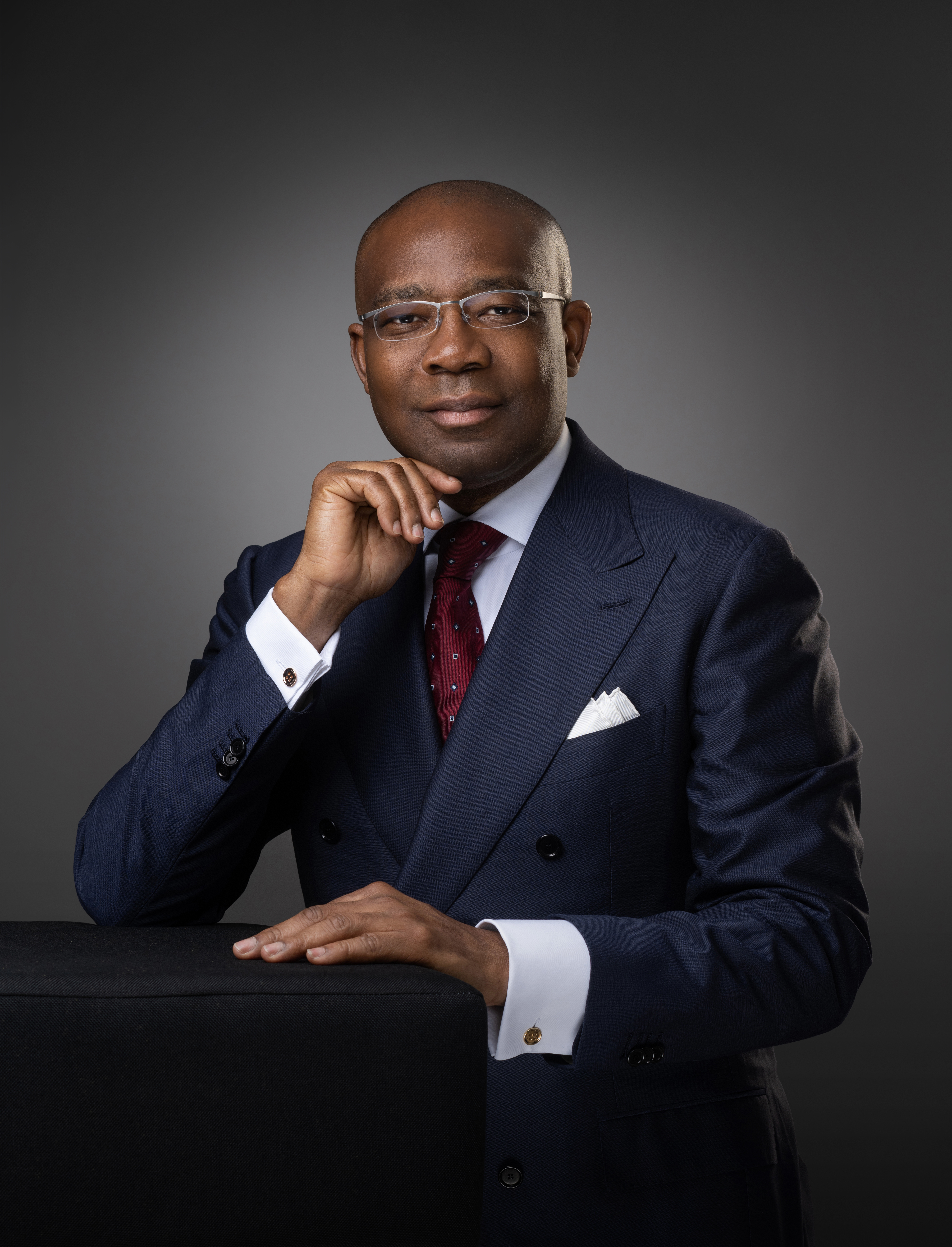

Central Bank Governors: Forging a consolidated financial landscape
Nigeria and Kenya are spearheading financial sector consolidation by proposing to increase minimum banking capital requirements tenfold. In other countries, similar initiatives are emerging more timidly. This leaves many markets full of smaller players that lack the means to fund complex, growth-essential projects. How can central banks achieve consolidation without hurting MSME lending in the short term and creating a race for scarce capital that could hurt industry profits?
Key points:
- How can central banks optimise capital adequacy for commercial banks?
- Risk-based capital or increased minimum capital: Which approach best protects financial systems?
- Time for tailor-made capital adequacy frameworks for big fintechs and neobanks?
Pending

-transformed.jpg)



